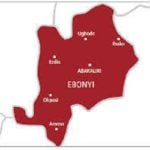TEN years after it was rested, the Occupy Nigeria protest is set to return. Headquartered at the Gani Fawehinmi Freedom Park, Ojota, Lagos State, Occupy Nigeria was a pan-Nigeria protest that rocked the foundation of this country and literally shut it down in 2012 in order to force the hand of former President Goodluck Jonathan’s administration to reverse the hike in fuel price it orchestrated. And it was a huge success. The success of Occupy Nigeria actually buoyed opposition to Jonathan’s administration and partly contributed to its eventual ouster via the ballot box in the 2015 general election. Ironically, many of the principal actors during the protests are now frontline members of President Muhammadu Buhari’s administration. Buhari himself was also a direct beneficiary of the protests. But they all seem to have conveniently forgotten about the protests that in part gave them the launching pad to the corridors of power. Otherwise, they would not have embarked on much more grievous, anti-people policies that birthed the huge protestation they latched onto in 2012. However, a host of civil society and Non-Governmental Organisations (NGOs) are already strategising to have a repeat of Occupy Nigeria.
Not a few believe, and the available socioeconomic indices support the view, that the incumbent administration has made the country progressively worse than it was in 2015. And the unfortunate and draconian scheduled hikes in fuel and electricity prices amidst unprecedented security challenges and tottering economy are a guaranteed promise of further ill-being and misfortune. It is, therefore, instructive that some selfless individuals and organisations that have been somewhat tolerant of and lenient with this administration in the last six years are now asserting the interest of ordinary Nigerians, intent on halting the assured journey to further immiseration of the citizenry which the proposed increase in the prices of electricity and fuel represents.
Judging by the sordid state of affairs and the official decisions and actions that tend to continue to compound the situation, the propriety of the impending protest is not in question. And of course, the people’s inalienable right to protest is not in question either, but we hasten to urge them to do so peacefully. It is imperative to realise that a protest, even if it appears to be successful, is not a destination; it is a journey, judging by the leaders’ penchant for consistently failing to address the yearnings of Nigerians. Activists and protesters, therefore, need to work smartly and endeavour to stay alive and in one piece, as issues thought to have been resolved may have to be revisited time and again because of the legendary official lack of sincerity and commitment to doing what is appropriate or agreed.
Ordinarily, at this time in the life of the country, the economy is too fragile and too weak to withstand the kind of huge protests being planned. But then, it will be uncharitable for anyone to blame the organisers since the government is apparently fixated on implementing policies that tend to engender misery. The official demonstration of ineptitude, absence of capacity and proclivity for taking the easiest, even if pernicious, policy options, are too grave and dangerous to gloss over. For instance, there is a lack of creativity in finance/economic management: every gap in the national income and expenditure is funded through borrowing. The challenges in the energy sector are being resolved through price hikes. The list of inefficient and ineffective official quick fixes in the different sectors of the economy is endless. These and many more evidences of lack of painstaking consideration of the implications of official policies are a grave disservice to the citizenry. Why should the government schedule hikes in the prices of fuel and electricity in an economy that has low capacity for job creation and income generation? Is that not a recipe for job and income losses?
However, because it seems to be bereft of the capacity to think through other options, the government simply latches onto the easiest solutions whether or not they are suboptimal. It is, therefore, imperative that it is stopped on its tracks, if only to open its mind to the fact that there are better approaches to governance. It is in the context of checking the free reign of arrogance of power and its deployment to inadvertently inflict pains on the citizens that we see the impending Occupy Nigeria protest against hikes in fuel and electricity prices, amongst other palpable and deleterious consequences of suboptimal governance. We strongly urge the government to avert the impending protest, not by the use of brute force as it may be tempted to do, but by rethinking the implementation of the proposed further increase in the prices of fuel and electricity.
YOU SHOULD NOT MISS THESE HEADLINES FROM NIGERIAN TRIBUNE
We Have Not Had Water Supply In Months ― Abeokuta Residents
In spite of the huge investment in the water sector by the government and international organisations, water scarcity has grown to become a perennial nightmare for residents of Abeokuta, the Ogun State capital. This report x-rays the lives and experiences of residents in getting clean, potable and affordable water amidst the surge of COVID-19 cases in the state…
Selfies, video calls and Chinese documentaries: The things you’ll meet onboard Lagos-Ibadan train
The Lagos-Ibadan railway was inaugurated recently for a full paid operation by the Nigerian Railway Corporation after about a year of free test-run. Our reporter joined the train to and fro Lagos from Ibadan and tells his experience in this report…
[ICYMI] Lekki Shootings: Why We Lied About Our Presence — General Taiwo
The Lagos State Judicial Panel of Inquiry probing the killings at Lekki Toll Gate, on Saturday resumed viewing of the 24hrs footage of the October 20, 2020 shooting of #EndSARS protesters by personnel of the Nigerian Army…
ICYMI: How We Carried Out The 1993 Nigerian Airways Hijack —Ogunderu
On Monday, October 25, 1993, in the heat of June 12 annulment agitations, four Nigerian youngsters, Richard Ajibola Ogunderu, Kabir Adenuga, Benneth Oluwadaisi and Kenny Razak-Lawal, did the unthinkable! They hijacked an Abuja-bound aircraft, the Nigerian Airways airbus A310, and diverted it to Niger Republic. How did they so it? Excerpts…
Sahabi Danladi Mahuta, a community mobiliser and APC chieftain. Mahuta spoke to select journalists at the sidelines of an Islamic conference in Abuja recently. Excerpts…






